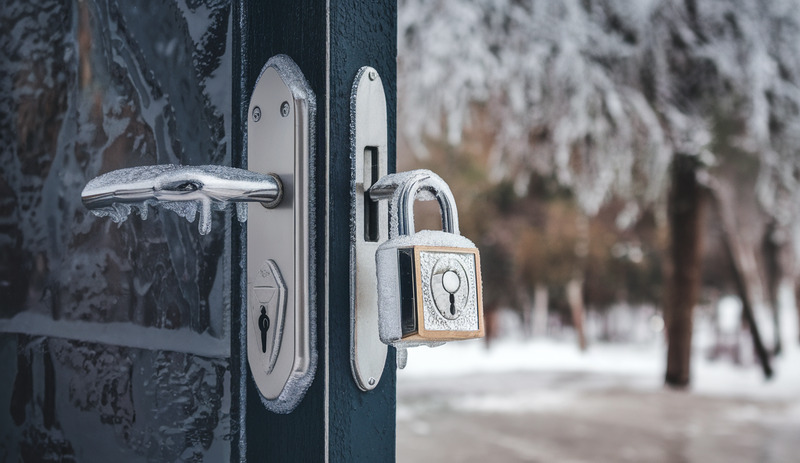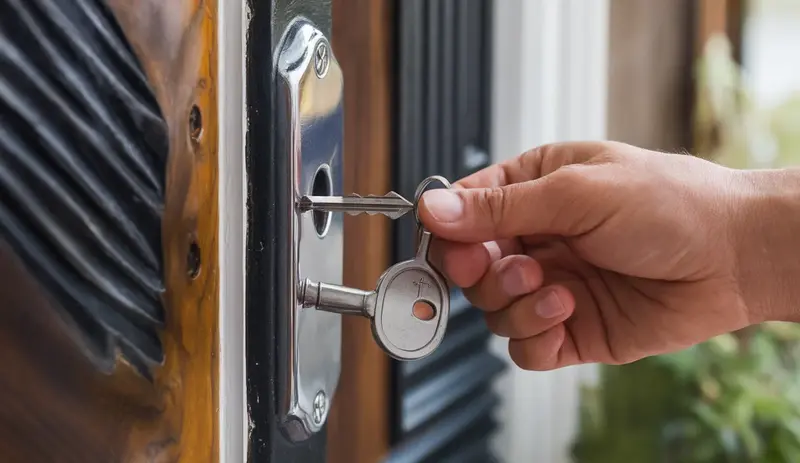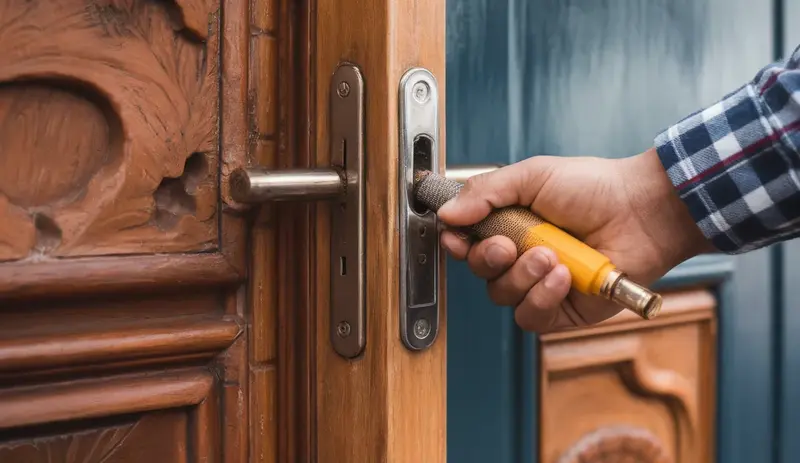
Dealing with a frozen lock is a frustrating winter challenge that can happen to anyone. This guide provides practical solutions to help you quickly regain access to your home and prevent future lock freezing issues.
Frozen Locks in Winter: Your Complete Survival Guide
Unlocking your door during winter in Greenwood Village, CO can be maddening. This simple act can become a test of your patience during the snowy season when frigid temperatures freeze your locks solid.
We have built our ultimate guide to getting around this very problem-frozen locks-instead of just plunging headlong into inevitable winter solutions like “just use a blow dryer, okay?” Please read ahead for much smarter (and safer) ways to keep your locks from freezing in the first place.
Why Do Locks Actually Freeze?
What truly unfolds when the temperature takes a nosedive? When the temperature drops, locks freeze, and here’s why: the moisture trapped inside the mechanism can condense and freeze when the temperature drops low enough. That’s a typical problem here in Colorado, where we have extremely low winter temperatures, and it’s a problem that can leave you very literally locked out.
Locksmiths in local areas have experienced it all. The key problem makers are normally:
• Built-up moisture from high humidity
• Quick changes in temperature
• Small water droplets that become stuck in locking mechanisms
Here is what most individuals do not comprehend: When temperatures reach the freezing mark, even a little bit of dampness can lead to huge difficulties.
Safe DIY Thawing Techniques
If your lock has chosen to ignore you, don’t fret. After opening hundreds of doors, here’s what we know about the right way to thaw a frozen lock.
Your best friend is gentle heating. A small butane lighter or a hair dryer on low heat can work wonders. Hold the heat source a few inches from the lock and move it very slowly and carefully. You want to warm the mechanism, not melt it.
Household champions when it comes to rescuing locks are:
• Isopropyl alcohol
• Portable alcohol gel
• Custom lock de-icer
Important alert: Boiling water and excessive force are absolute no-nos. They can damage your lock or create more moisture that will refreeze.
You May Be Interested In: What’s The Most Secure Mailbox Lock In Denver?
When DIY Isn’t Enough – Professional Help
When DIY methods fail, what does that mean for you? Professional intervention is sometimes the smartest choice. When you can’t get inside your home, you want help to arrive quickly. That’s why the best emergency locksmiths like Doctor Lock respond within 30-60 minutes. And that’s why you want to know how much it might cost before you call. Emergency locksmiths typically charge from $50 to $150 for their services.
Indications that you require expert assistance are:
• The lock is still frozen after numerous efforts.
• The lock mechanism is clearly damaged.
• The key or lock has totally failed.
You can find our local locksmith services conveniently located on Google Maps.
Prevention is Cheaper Than a Locksmith
If you’re uncertain how your present lock performs against winter demands, a rapid preventative method can save you both time and money.
Winter maintenance tips for locks:
• Before winter sets in, ensure your locks are coated with a lubricant that does not gum up in cold weather. Graphite is the best lubricant for locks and comes in an aerosol format that makes application easy.
• Weatherproof as best as you can. Use your locks in places that are sheltered from precipitation whenever possible, or make them as shielded from rain and snow as possible.
• If the weather is so inclement that locks stand a good chance of freezing while in use, carry a de-icer that can be sprayed into locks to get them going again.
Pro tip: A short security review from a nearby locksmith can greatly diminish the chances of winter lock mishaps.
Final Thoughts
You can avoid winter lock problems through knowledge and preparation. Locks can function smoothly in low temperatures, but they need your help to do so. Here are some helpful suggestions and tips to ensure that your locks work through the winter, even if you don’t.
By understanding lock freezing, using safe thawing techniques, and implementing preventative measures, you can successfully navigate winter lock challenges. Stay calm, be prepared, and don’t hesitate to seek professional help when needed.


